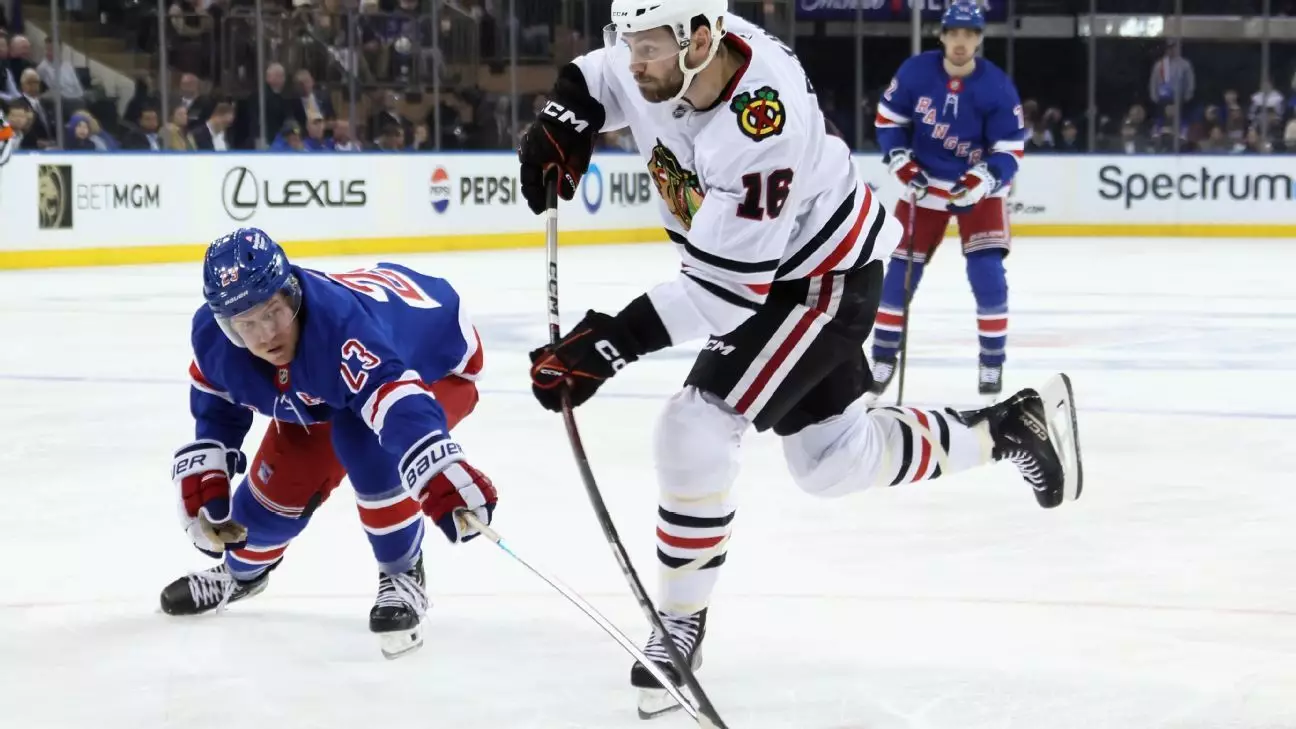The New York Rangers entered last season as one of the most formidable teams in the National Hockey League (NHL), finishing at the top of the standings. However, the current season paints a stark contrast to their past glory. As the season progresses, the Rangers find themselves grappling with inconsistency and discontent, reflected in their disturbing record of eight losses in the last ten games. The recent trade of their captain, Jacob Trouba, to the Anaheim Ducks marks a pivotal moment for the team, raising questions about leadership and performance on the ice.
The Rangers’ current predicament came to a head after their latest defeat—a disappointing 2-1 loss to the Chicago Blackhawks, who have struggled significantly this season. Playing at Madison Square Garden, the Rangers were met with disdain from their fans, who expressed frustration with multiple rounds of boos—an unthinkable reality for a team that once commanded respect in their home arena. In this match, Artemi Panarin, the team’s top scorer, failed to make an impact, reflecting the collective struggles of the roster. The loss against a team that had failed to secure a victory on the road in over five weeks speaks volumes about the Rangers’ challenges.
A spectrum of issues has contributed to the Rangers’ decline. Coach Peter Laviolette acknowledged the poor execution on the ice, suggesting the team’s struggles could stem from fatigue, mental fatigue, or both. A significant concern is the team’s inability to convert on their numerous scoring opportunities, despite launching 30 shots in the game against the Blackhawks. They settled for a lone short-handed goal from Will Cuylle, an alarming indicator of the team’s failure to capitalize on key moments. The recent pattern of being outperformed by backup goalies, as witnessed in their loss to Philipp Grubauer of the Seattle Kraken, amplifies the urgency for improvement.
The decision to trade captain Jacob Trouba not only aims to create cap space but also alters the team’s balance on defense. Trouba was a significant physical presence on the ice, and his departure leaves a void that could potentially destabilize the team’s defensive strength. The signature eight-year, $92 million contract extension awarded to star goaltender Igor Shesterkin further complicates matters, especially considering his recent struggles with a 9-10-1 record. It raises questions about the effectiveness of the team’s roster and whether they can rally around a new leadership structure in Trouba’s absence.
For a team in disarray, the road ahead appears daunting. The Rangers are set to face the Buffalo Sabres followed by a challenging home game against the Los Angeles Kings. These upcoming matchups will serve as critical tests for the team. The urgency for improvement cannot be overstated, and the players, particularly veteran Chris Kreider, must step up. Kreider’s emphasis on the need for a focused mindset and sustained effort highlights the necessity for accountability and strategic recalibration as they try to restore their season.
As the season unfolds, the New York Rangers must navigate the turbulence triggered by recent losses and roster changes. With their once-promising season now in jeopardy, it is imperative for the team to regain its footing and rediscover the elements that led them to success last year. Stronger execution, enhanced communication, and renewed determination will be essential as they work through their challenges. Time will tell whether the Rangers can reverse their fortunes and avoid being left behind in a quickly shifting competitive landscape.

